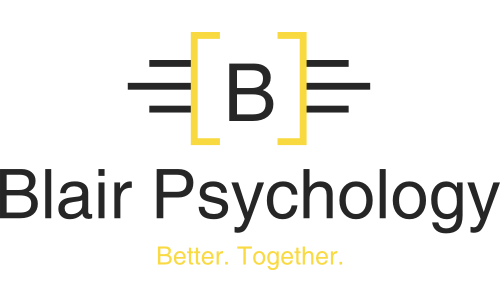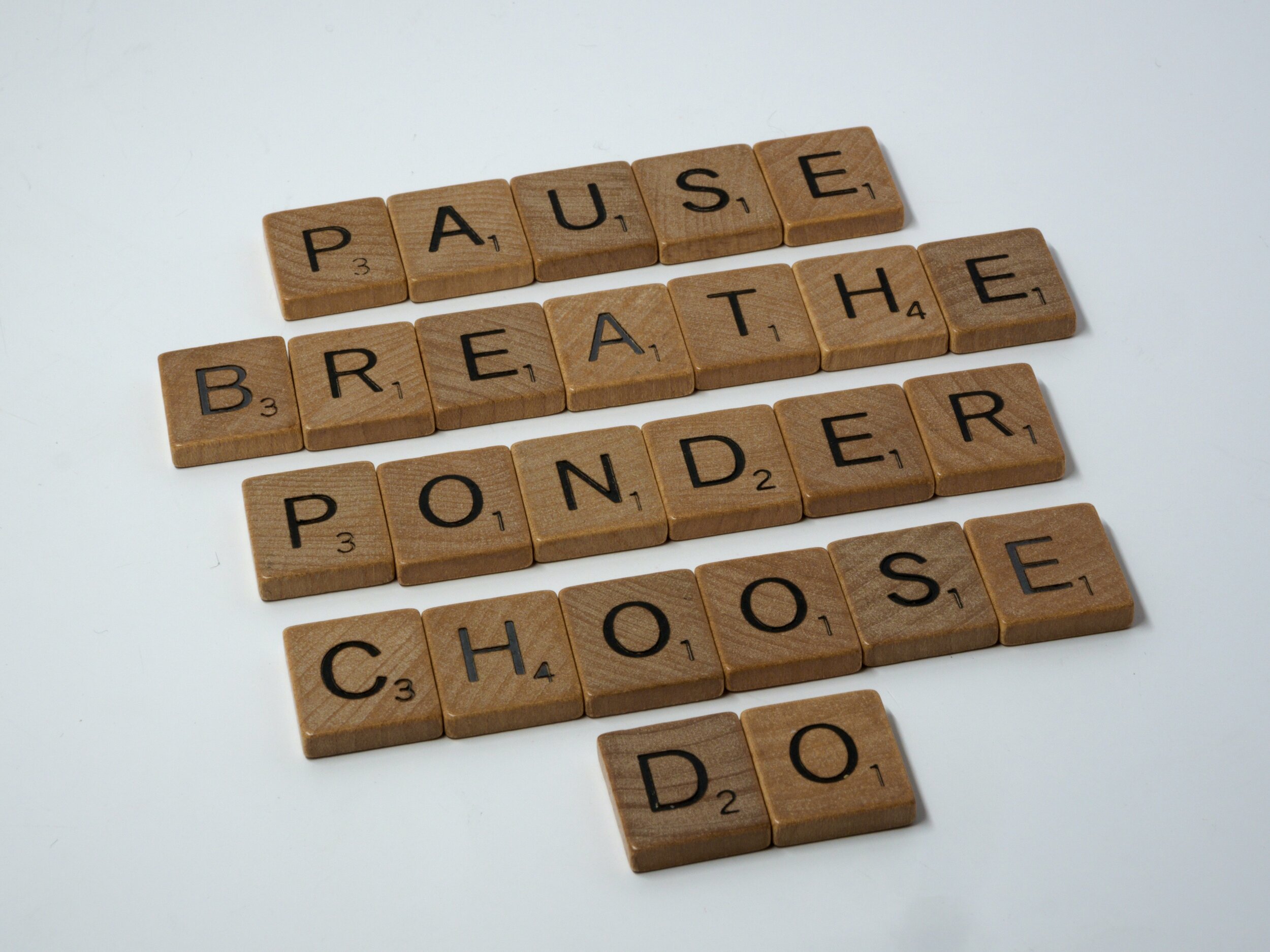I frequently have to educate my clients that love is not a feeling. It’s a choice. That feeling we mistakenly interpret as love? It has a name. It’s called limerence and it can be amazing. But it’s not love, and it’s usually not sustainable. But that’s not a bad thing.
Small Things. Often.
The only direction you can coast is down.
My wife doesn't nag. She holds me accountable.
If we’re honest, we can admit that calling your partner a nag is a thinly veiled attempt to silence them rather than accept responsibility for our own inaction. In most cases, the solution to nagging lies not in changing the behavior of the person who nags, but in changing the behavior of the person being nagged. Nagging is the result of poor communication, unclear expectations, and lack of accountability.
To open the doors of communication, go through the window.
Response-ABLE - Part II
“Between stimulus and response there is a space. In that space is our power to choose our response. In our response lies our growth and our freedom.”
― Viktor E. Frankl
In last week’s post we introduced the idea of being response-able. Response-ability is when we are able to inhibit our initial impulsive reactions in order to engage in value consistent responses. This is a defining characteristic of healthy relationships, and mature people.
Step one in cultivating response-ability is looking back at past interactions to identify where you reacted instead of responded. By identifying these reactions and recognizing them in their earliest stages we can develop the ability to pause.
Step 2: Prepare for Spaces in Future
Most couples really only have a handful of fights that take a predictable and reliable path each time conflict is initiated. The great news about this is that because these patterns are so reliable, they’re also easy to identify and correct.
Learn the pattern!
If you can identify the triggers that are most likely to pull for a reaction rather than a response, you can develop a skill called coping ahead. Coping ahead is internally rehearsing a situation ahead of time so that you are prepared to respond skillfully when it occurs.
Here are some tips to cope ahead:
Identify the situations that are most likely to prompt problematic reactions. Be specific in describing the situations. Name the emotions and actions likely to interfere with your ability to respond in a manner that prioritizes the connection with your partner and the health of your relationship.
Imagine the situation in your mind as vividly as possible.
Decide how you would ideally like to respond. Be specific. Write out a detailed script that you can refer to in the future. A response doesn’t have to be spontaneous to be sincere.
Practice responding effectively. Rehearse your actions, your thoughts, what you will say, and how you will say it. Practice makes progress!
Coping ahead may sound like a lot or work but if you’re like most couples, it’s probably time to try something new. More importantly, it’s time to try something that actually works. Remember:
“If you always do what you’ve always done, you’ll always get when you’ve always gotten.”
Step 3: Be Present
Be here now. Scan your mind. Scan your body. Scan your emotions. How do you feel? The truth is we’re not always in a space where we can respond effectively and that’s okay. However, we are responsible for identifying those moments and taking the appropriate steps to keep ourselves from reacting poorly and hurting the people we love. Go for a walk, take a break, breathe, practice self-care. Communicate to your partner when you are not response-able, but also communicate that you understand the importance of resuming the conversation when you are.
Being response-able is not easy. But with practice you can get there.
Check back next week for our post on the Window of Tolerance.
Have a topic you’d like to hear about? Email me at Drjblair@gmail.com
Response-ABLE - Part I
“Between stimulus and response there is a space. In that space is our power to choose our response. In our response lies our growth and our freedom.”
― Viktor E. Frankl
One of the defining characteristics of a healthy relationship is a couple’s ability to recognize the space that exists between actions and reactions. When we recognize and use this space, it allows us to take full ownership of our behavior and the quality of our interactions. Healthy couples recognize that while we don’t always have control of the events that happen to us, we do always have the power, freedom, and responsibility to choose our response. However, in order to use that power, we must learn to identify and properly use the space that Viktor Frankl speaks of above. Instead of doing what feels right in the moment and reacting impulsively, we must learn to pause, reflect, and respond.
Unhealthy couples operate from a reactive state. They have not developed the ability to be response-ABLE, and their relationships suffer as a result. The ability to inhibit our initial impulsive reactions in order to engage in value consistent responses is a fundamental sign of maturity that we must continuously work to cultivate. It’s a muscle, and without deliberate effort it will not grow stronger.
Initially, identifying this “space” can be very challenging. Many people falsely believe that this “space” does not exist for them. I promise you, the space is there. You just have to learn where to look.
So how do you cultivate your response-ability?
Step 1: Identify Missed Spaces in the Past
Life comes at us fast and identifying these spaces in real time is usually not possible without substantial practice. The first step in cultivating your response-ability is to look back at your past interactions in order to identify situations where you reacted instead of responded.
Think back to the last time you had a challenging interaction with your partner. Did you react, or did you respond? Remember, reactions are impulsive acts that may feel appropriate in the moment but usually lead to an escalation of conflict or relational distress. Responses on the other hand are deliberate, value consistent choices we make that embody our best self. Responses are more likely to lead to deescalation and facilitate closeness.
If you reacted, what was your reaction? Did you get defensive? Did you deflect attention way from your behavior and blame your partner? Did you withdraw? Did you get flooded with feelings of guilt and inadequacy? Did you act out in anger?
How has reacting in these ways impacted your relationship?
Most of us have a handful of go-to reactions when faced with conflict that are usually not healthy or effective. It’s important to identify these reactions and begin to recognize them in their earliest stages. Doing so gives us the opportunity to pause in that space between our partner’s actions and our response. It allows us to act on our values rather than our feelings. It allows our relationship to grow.
Be Response-ABLE
Take some time and write out your answers to the questions above. Set up a meeting with your partner to talk about your responses. Work together to identify a moment during a recent interaction where you should have paused to respond instead of impulsively reacting.
Remember, in your response lies your growth, and your freedom.
Check back next week for Response-ABLE Part II - Coping Ahead
Every. Day.
EVERY.DAY.
Can you remember the last time you took your ring off? I can. For me it was last night. Every night, before I go to bed, I take my ring off and place it on the counter next to my sink. I don’t do this for any functional purpose and it’s not symbolic of any lapse in my commitment to my wife. I take it off so that every morning I can make the conscious choice to put it back on.








